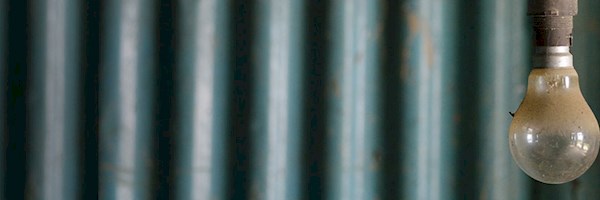Think you’re covered? Think again. Your insurance might not cover damage caused by power surges after load shedding.
Picture this: you’re sitting eating dinner by candlelight during another round of load shedding when the power suddenly comes back on. The surge fries your computer and fridge. Although annoyed, the incident doesn’t initially upset you unduly as you’re confident your insurance will cover the replacement costs.
However, upon calling your insurance company the next day, you are informed that they will not cover the replacement cost because you didn’t have the necessary surge protection equipment in place as stipulated by the insurance policy.
What is a power surge? A power surge is an oversupply of voltage from the power company (or lightning) that can last up to 50 microseconds. Although surges are very short in duration, they can overload and damage electrical equipment.
Paul Goodall, manager of Reinsurance at Lion of Africa Insurance says consumers need to take all reasonable steps to mitigate losses as their insurance policies may not cover damage caused by load shedding.
He explains that the exclusion of losses due to load shedding is part of the standard wording of most short term insurance policies, which states that the policy “excludes any loss or damage which results from the deliberate withholding of power”.
The following extract from a notice recently issued by an insurance company to a local complex is a case in point.
“The insurance provided is strictly subject to the installation of power surge protection equipment. All loss or damage to the property insured by power surges or lightning strikes that do not have adequate protection will be limited to 35% of the sum insured and will be subject to an excess as stated in the schedule.”
Know where you stand:
Given the above, Goodall advises consumers to establish whether or not and to what extent their insurance company will cover damage or loss resulting from power surges. In most cases, if policies cover such events, he says insurance companies will accept responsibility provided that policyholders have taken all reasonable steps to mitigate the risks.
In line with this, Goodall says consumers must take particular care with regards to their alarm systems and make sure that alarm system batteries are fully charged at all times. He admits that this may not always be possible though as the increased frequency of power interruptions means that batteries may not recharge completely between power cuts. In this instance, insurers may require evidence that the policy holder has taken all reasonable steps to prevent losses immediately or as soon as possible after the power interruption.
He adds that consumers should also take steps to avoid the loss of food as it’s unlikely that insurance companies will cover the cost of such a loss stemming from load shedding. With this in mind, he advises replacing damaged fridge seals and avoiding opening and closing fridge or freezers during blackouts.
